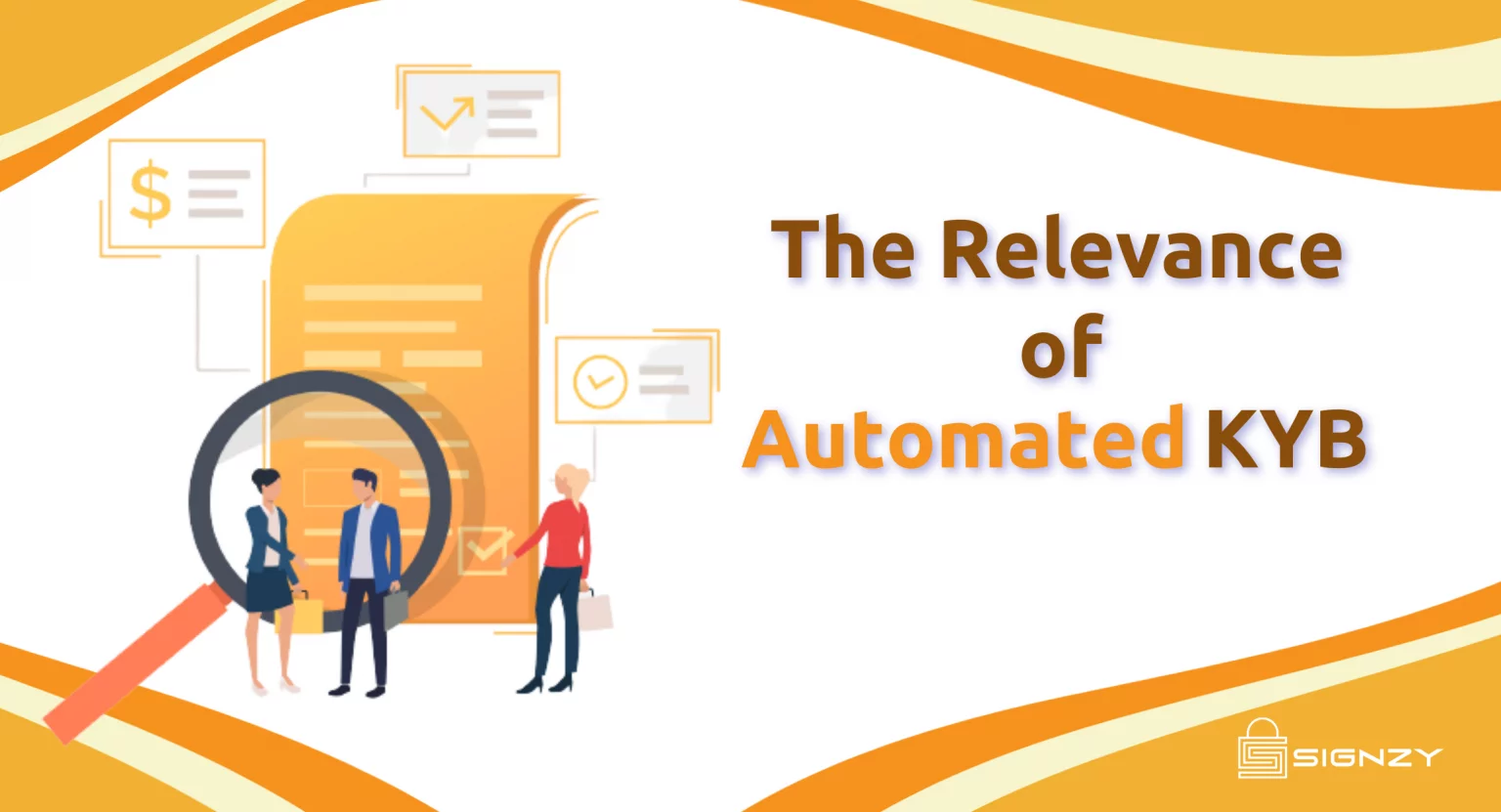The anti-money laundering software market is projected to reach $1.77 billion by 2023. This means that banks and financial institutions are improving their processes like KYC, KYB, and AML. But we need a closer look at why this is happening, its relevance, and how we can normalize active automation.
Banks and other financial institutions have long been the central focus of all commercial activity. They must carry out due diligence at each stage of the client journey, which is a huge duty. A compromise in that financial system might have financial and security repercussions worldwide in today’s digital age.
Ironically, the least concerning possible problems are fraud and money laundering. As a result, banks may unknowingly assist in funding international terrorism, illegal drug use, and human trafficking. Banks can help KYCC by using increased due diligence techniques in the KYB and KYC verification process to reduce the possibility of onboarding non-compliant organizations.
KYB- A Deeper Look And Better Solution
The financial sector is aware of the conflict it is facing. Banks and other financial institutions realized the value of KYB and AML/KYC compliance after being the target of ongoing cyberattacks, scandals, embezzlement, and fraud schemes. Many Small and Medium-Sized Businesses (SMBs) don’t, though. Even some huge organizations disregard AML/KYC compliance due to the expense of onboarding new customers.
Banks are ultimately at risk due to assumptions made by other industries. For example, one company made a hiring decision based only on intuition, believing the position to be entry-level and exempt from intrusive background investigations. HR promoted this employee to a crucial decision-making position a few years later, assuming the background check was completed earlier.
Why KYB Should Be Genuine And Effective
Everyone inside and outside the financial industry must contribute to AML/KYC compliance to protect the sector. Companies should not just seek digital KYC verification to avoid fines for non-compliance. Instead, all businesses, from SMEs to major multinationals, should feel compelled by moral and ethical principles to investing in rigorous KYB and KYC verification services.
The secret to stopping fraud and boosting global security is making sure the people you bring on board are reliable. That is why it is crucial for financial institutions to implement an efficient KYB and KYC verification process.
Before beginning a commercial connection, B2B customers and their clients must undergo worldwide ID verification and behavior monitoring as part of the KYB verification process to assess their risk and sustainability.
Businesses and banks make sure that transactions are consistent with their risk profile by doing regular behavior monitoring. In addition, employee records and other important information are maintained secure and current with the help of effective digital identity management.
Knowing a company’s high-risk clients and business partners helps to protect your company’s reputation from being accused of criminal carelessness for facilitating the movement of illegal monies.
How to Make Automated KYB and KYC Verification the Norm in Your Business?
To achieve AML/KYC compliance, developing your KYB and KYC verification procedure is an excellent place to start. Transparency in financial activities can be ensured by adhering to local, regional, and international AML/CFT laws and regulations, including those of the European Union (EU), the United Kingdom (UK), the United States, and others. Concerning ongoing client screening and risk assessment, having quick access to the pertinent worldwide watch lists, spam lists, and sanction lists are helpful.
As previously mentioned, verification for commercial entities can be time-consuming, and even ID card verification is more complex with the proper global ID verification system.
Databases
Your digital KYC verification system must have access to the appropriate databases to swiftly validate IDs and documents, checking watchlists, and evaluate the risk to guarantee that you comply with AML/KYC regulations. Most identity verification service providers can validate customers’ IDs; they do not offer tools for behavior monitoring or document verification services.
Digital Identity Management And Relevant Laws
Data collecting and digital identity management are disadvantages of the DIY method for building your own digital KYC verification system. Businesses occasionally need to remember that there are rules for data handling in addition to using client information to inform customers of impending changes and events. In addition, consumers can maintain control over their data thanks to the Global Data Protection Regulation (GDPR) and the California Consumer Privacy Act (CCPA).
Act on Protection of Personal Information (APPI), which will have the same extensive effects for third-party data suppliers outside of Japan as the GDPR, has now been implemented as Japan’s equivalent of the GDPR. In cross-border ID verification, these data requirements and digital identity management should be included in the cost of customer onboarding. In addition, providers of identity verification services must also accommodate mobile ID verification.
Identity Verification With KYC And KYC
Combining their current customer onboarding procedure with mobile ID verification is the one grey area where banks and other financial institutions struggle. However, artificial intelligence-powered automated customer onboarding systems may be of assistance.
Providing an automated KYC verification method that detects fraudulent information faster than humans could help close the gap between banks and businesses. In addition, KYB and KYCC should be carried out in unison and with perfect online ID verification as part of B2B customer onboarding.
Bottomline
KYB adoption is no longer the issue. Enterprises are looking forward to automation and its normalization for improved identity verification. You can avail of effective solutions for automation at www.signzy.com.
About Signzy
Signzy is a market-leading platform redefining the speed, accuracy, and experience of how financial institutions are onboarding customers and businesses – using the digital medium. The company’s award-winning no-code GO platform delivers seamless, end-to-end, and multi-channel onboarding journeys while offering customizable workflows. In addition, it gives these players access to an aggregated marketplace of 240+ bespoke APIs that can be easily added to any workflow with simple widgets.
Signzy is enabling ten million+ end customer and business onboarding every month at a success rate of 99% while reducing the speed to market from 6 months to 3-4 weeks. It works with over 240+ FIs globally, including the 4 largest banks in India, a Top 3 acquiring Bank in the US, and has a robust global partnership with Mastercard and Microsoft. The company’s product team is based out of Bengaluru and has a strong presence in Mumbai, New York, and Dubai.
Visit www.signzy.com for more information about us.
You can reach out to our team at reachout@signzy.com.
Written By:

Signzy
Written by an insightful Signzian intent on learning and sharing knowledge.



